New Plays, New Conversations
This week on HowlRound, we continue our series on Triple Play, a consortium project between Theatre Development Fund and Theatre Bay Area. Triple Play is exploring the crucial triangular relationship between playwrights, theatres, and audiences with the hope of creating a paradigm shift in the way the field thinks about audiences and the way audiences experience new work. Now in phase two, Triple Play is midway through 300 interviews between playwrights and audience members around the country. This series will share best practices in audience engagement and question how we define the relationship between artists, theatre companies, and audiences. In this piece, Leda Hoffmann, Director of Community Engagement at Milwaukee Repertory Theater, discusses their audience dialogue initiative called Act II, a collaboration between Milwaukee Rep and the Zeidler Center for Public Discussion. —Alli Houseworth, Series Curator
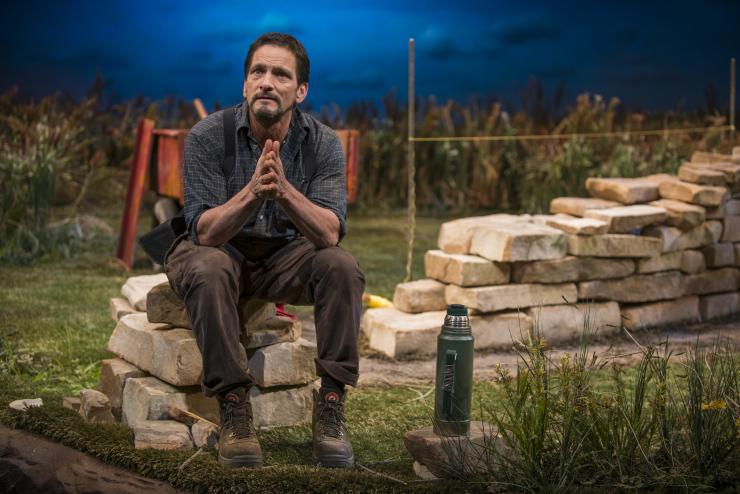
What happened to Whitman’s America? Where is the boatman and the shoemaker and the woodcutter and the ploughboy, the young wife and the girl sewing? I don’t hear them singing separately—intent, focused, individual—yet gathered also in some unified song. There is no unified song. […] Each voice fills its own house but cannot reach, any more, into the houses of its neighbors, its township, its city, its land and over its borders into the great stretching domain that is America. —American Song by Joanna Murray-Smith
A little over a year ago, Milwaukee Repertory Theater embarked on a new mission to create positive change through world-class theatre experiences that provoke meaningful dialogue amongst an audience representative of Milwaukee’s rich diversity. My position as Director of Community Engagement at Milwaukee Rep was brand new, and I took stock of the resources we had and started to dream about what we could do. In one of the most segregated cities in America, how do we create platforms for people from different neighborhoods to talk to each other, hear each other’s stories, and discover commonalities? How do we get audiences in our theatres to think critically about the world around them, and ask themselves what they want their community to look like?
With the launch of the John D. (Jack) Lewis New Play Development Program, a history of outreach programs in schools and community centers, and an audience excited about investigating plays on a deeper level. Over a quarter of audience members attend our pre-show talks that we have been offering for over seventeen years at every performance in our two largest spaces; we had the resources to create positive change with a large reach. We started a new Community Conversation program to create a city-wide dialogue around themes related to a play in our season.
We had a world premiere commission coming up—American Song, an 80-minute play by Joanna Murray-Smith. The play tackles an urgent question facing our community: in an increasingly polarized society, where is our unified American song? Told from the perspective of the father of the perpetrator of a school shooting, the play address issues of gun safety, parenting, and education.
I’ve been leading standard talkbacks for years and, while they work very well for some projects, I wanted to break away from that model for this play. I knew we could create more honest connections than you can find speaking in a group of 50+ people. We partnered with the Frank Zeidler Center for Public Discussion, a Milwaukee-based not-for-profit specializing in fostering civic dialogue. After every performance of American Song, Zeidler Center facilitators lead small group dialogues with audience members.
This was a big risk for our theatre. Would people be willing to share personal stories with strangers? What were audiences going to make of this? What would get people to stay and participate? Logistically, how could we move audiences in our largest 720-seat theatre into intimate group discussions in our other spaces?
There is an amazing ability for new plays to provoke conversation. New plays inherently have a contemporary voice; a voice that can ask the questions we need to ask right now.
We called it “Act II.” After the curtain call and with the house lights still off, Dr. Katherine Wilson, the Executive Director of the Zeidler Center, introduced Act II and a speaker—a community leader with a unique perspective on the play. The speaker’s five-minute response to the play gave us a glimpse into the kind of thoughts this play might engender and served as a starting point for the following conversations in the lobby. Over a third of audience members stayed for the post-show dialogues. In groups of seven to eight people, facilitators used the Zeidler Center’s Reflective Structured Dialogue methodology to guide the conversation toward personal stories tied to the themes of the play and ensure active listening. For thirty to forty-five minutes, people listened to the stories of strangers, shared openly and honestly, and heard perspectives different from their own. Of those, over 80 percent said that it contributed positively to their experience with the play. People shared experiences relating to their roles as parents/caretakers; witnessing the effects of violence and crime in their lives; and identifying what they felt were troubling trends in American society. (Read the full Zeidler Center report on the dialogues here.) News of the conversations spread throughout the city—we heard from people who didn’t stay that wished they had once they heard about it from friends.
Videos of all thirty speakers went online, engaging audience members with other speakers and reaching people across the country. It also allowed speakers—leaders from a broad spectrum of Milwaukee organizations—to engage with each other. One speaker organized a follow up meeting for all the speakers to connect and reflect on the experience.
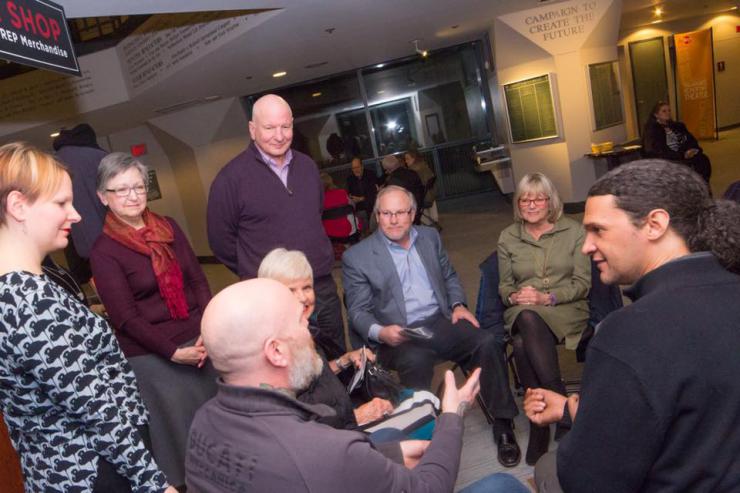
New plays go hand in hand with community engagement programming, and often provide the platform for the conversations that our city, our community, and our country demand.
Now in our second year, our Community Conversation this season focuses on Disgraced by Milwaukee Rep Associate Artist Ayad Akhtar. During the run of this production, we will host Zeidler Center dialogues, have panel discussions twice a week, and Intercultural Dinners in partnership with the Interfaith Conference of Greater Milwaukee for up to 360 civic leaders and community members, ensuring diversity with every conversation. Launching a city-wide discussion of identity, we hope to create a platform for open discussion of intercultural relations that speaks to the most pressing issues facing Milwaukee and the country.
There is an amazing ability for new plays to provoke conversation. New plays inherently have a contemporary voice; a voice that can ask the questions we need to ask right now. The stories can be localized to the here and now or about a different time in a different place. But they are chosen and written for now because they say something that matters. New plays go hand in hand with community engagement programming, and often provide the platform for the conversations that our city, our community, and our country demand.
Looking to the future, Milwaukee Rep has new plays in development that will provide an excellent platform for future conversations, continuing the idea that new plays often create the strongest platform for localized, current conversations.

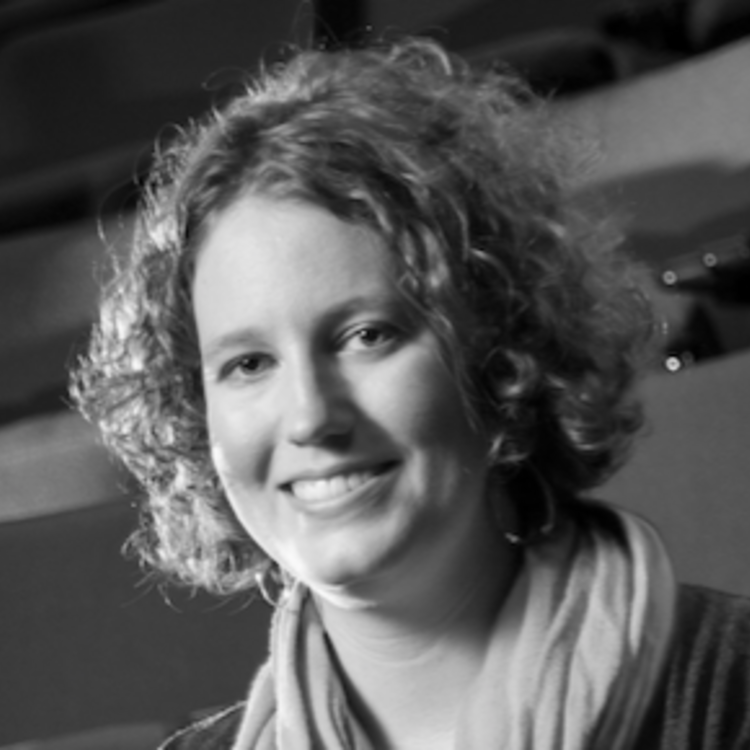

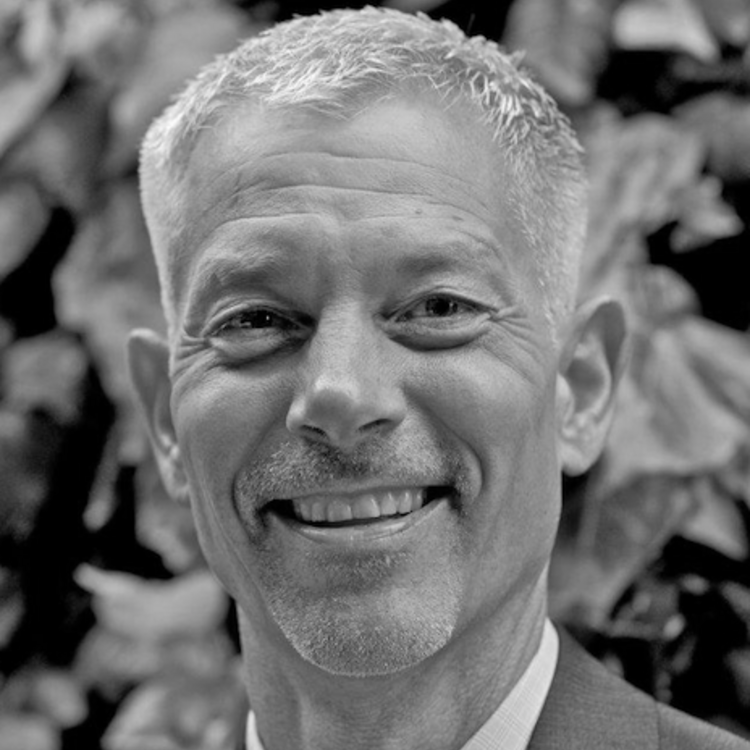
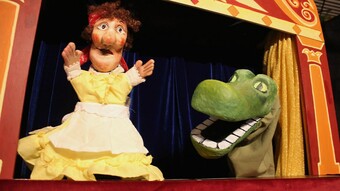

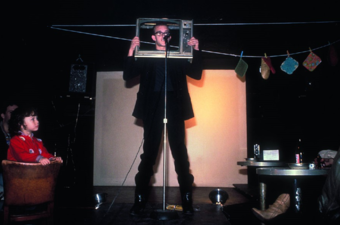

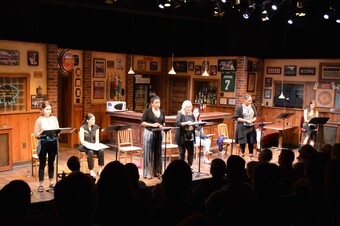

Comments
The article is just the start of the conversation—we want to know what you think about this subject, too! HowlRound is a space for knowledge-sharing, and we welcome spirited, thoughtful, and on-topic dialogue. Find our full comments policy here